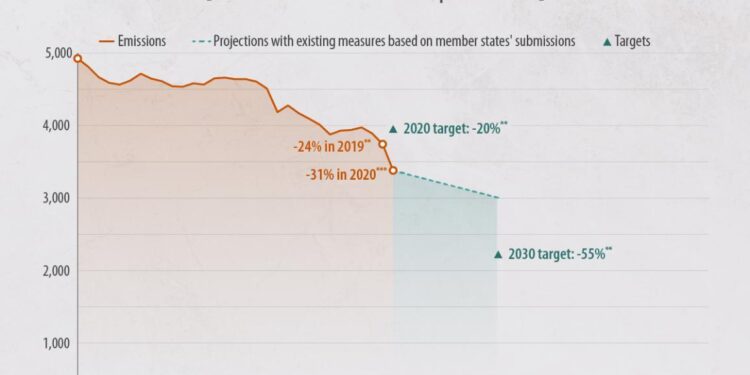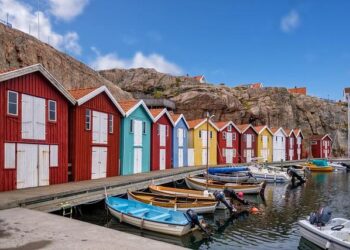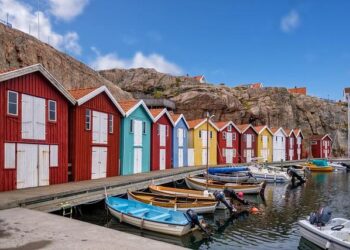In a pointed call to action, Sweden’s former environment minister has emphasized the European Union’s “moral obligation” to support developing countries in cutting greenhouse gas emissions. Speaking on France 24’s “Talking Europe,” the ex-minister highlighted the urgent need for wealthier nations to lead the way in climate finance and technology transfer, as the world races to meet global emissions targets. The remarks come amid ongoing debates over the EU’s role in international climate diplomacy and its responsibility toward vulnerable nations grappling with the impacts of climate change.
EU Faces Moral Responsibility to Support Developing Nations in Emission Reductions
European leaders face growing pressure to step up their support for developing nations struggling to balance economic growth with urgent climate action. Sweden’s former environment minister emphasized that the EU’s historical emissions place a unique moral obligation on the bloc to facilitate green transitions abroad. This support is not merely philanthropic but a critical component of global climate stabilization, requiring extensive financial aid, technology transfer, and capacity-building initiatives aligned with the principles of climate justice.
Key areas where the EU’s assistance is deemed pivotal include:
- Funding renewable energy projects tailored to local contexts
- Enhancing resilience to climate impacts in vulnerable regions
- Supporting sustainable agriculture and forestry practices
- Facilitating access to cutting-edge clean technologies
| Support Category | Key Measures | Projected Impact |
|---|---|---|
| Financial Aid | Grants and low-interest loans | Accelerate transition to renewables |
| Technology Transfer | Clean energy infrastructure support | Increase energy efficiency |
| Capacity Building | Training and knowledge exchange | Improve climate governance |
Insights from Sweden’s Former Environment Minister on Equitable Climate Action
Sweden’s former Environment Minister has underscored Europe’s critical role in addressing global emissions inequities, emphasizing that the EU bears a “moral obligation” to support developing countries in their climate commitments. Speaking at a recent climate forum, she highlighted that historical emissions from developed nations have contributed disproportionately to current global warming, necessitating a stronger financial and technological assistance framework to vulnerable economies. The minister argued that without equitable distribution of climate responsibilities, international agreements risk lacking the trust and cooperation needed for effective implementation.
To translate this vision into actionable policies, several key priorities were outlined:
- Enhanced climate finance: Scaling up funds for adaptation and green infrastructure projects.
- Technology transfer: Facilitating access to clean energy solutions in less developed regions.
- Capacity building: Strengthening institutional frameworks to support sustainable development goals.
The former minister also pointed to recent EU initiatives aimed at closing the emissions gap, noting that these efforts must be reinforced by transparent reporting and accountability mechanisms to ensure that funds reach their intended targets effectively.
| Focus Area | EU Commitment | Developing Country Need |
|---|---|---|
| Climate Finance | €100 billion/year by 2025 | Accessible, long-term funding |
| Technology | Innovative clean tech partnerships | Affordable and adaptable solutions |
| Capacity Building | Training and governance support | Local expertise and implementation |
Strategies for Enhancing Cooperation Between Europe and Developing Countries on Climate Finance
Deepening collaboration between Europe and developing nations on climate finance demands a multifaceted approach. First, transparency and accountability must be prioritized to ensure funds reach their intended targets effectively. Establishing joint monitoring frameworks with clear benchmarks allows both parties to track progress and build trust. Additionally, Europe can increase support through capacity-building initiatives that empower developing countries to design and implement climate-resilient projects tailored to local realities.
Moreover, fostering an inclusive dialogue that respects the unique challenges faced by developing nations is crucial. Strategies include:
- Enhanced stakeholder engagement, incorporating civil society and indigenous voices
- Flexible financing models that combine grants with concessional loans
- Technology transfer partnerships centered on renewable energy and sustainable agriculture
- Aligning finance commitments with the Paris Agreement’s goals, emphasizing equity and common but differentiated responsibilities
| Key Focus Area | European Role | Developing Countries’ Role |
|---|---|---|
| Capacity Building | Funding training programs | Implementing climate policies |
| Technology Transfer | Providing green tech | Adapting innovations locally |
| Finance Mechanisms | Offering grants & loans | Ensuring transparent use |
Final Thoughts
As the global climate crisis intensifies, the call from Sweden’s former environment minister underscores the pressing need for the European Union to step up its support for developing nations. With growing emissions and limited resources, these countries face disproportionate risks and challenges. The EU’s response will not only test its commitment to global climate justice but also shape the effectiveness of international efforts to curb greenhouse gas emissions worldwide. As negotiations continue, the world watches closely to see whether Europe will translate its moral obligations into concrete action.















